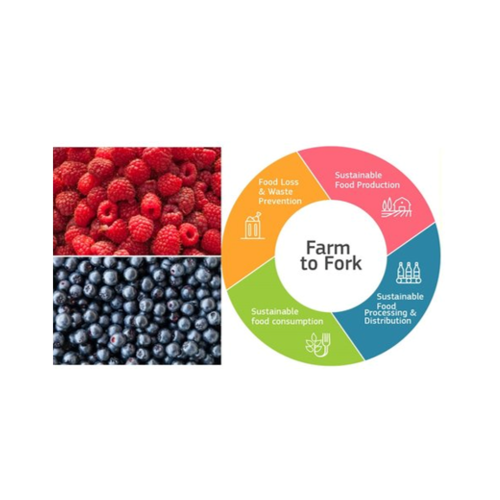The Sustainability of European Food Systems

2020-10-22
AIJN and SGF International would like to thank to all attendees to the two-day webinar "The Sustainability of European Food Systems - The Impact of the F2F Strategy on the Juice Industry” that we had on the 5th & 6th of October. We had over 200 people registered for both days !!! We had interesting points that are worth summarizing:
During the first day the lecture on Digital farming could clarify, for instance, that although digitalization will bring benefits to farmers it will depend also on each Member State to have their own tools to improve the infrastructure they have e.g. broadband to implement digital tools. On the other hand, we understood what really means to use classical breeding techniques, which is highly important when we want to understand if GMOs are pretended to be used in a certain product e.g. fruit juices. Furthermore, we had a view of the use of biological control products and we learned that those are important for the sustainable development of global agriculture, however prices need to be considered when the production of them is put in place. We could hear that it is very possible that the 25% of agricultural land under organic farming by 2030 target is possible to attain, although not immediately, as of now we are in 7.9% of land in the EU in 2018 (excluding UK) and projected growth according to BAU is 16% in 2030.
On the second day, we learned that the Common Agricultural Policy promotes the sustainable use of PPP (plant protection products). For instance, in the Fruits and Vegetable sector at least 10% of spending in the operational programs must be on environmental actions that go beyond mandatory environmental standards. From the Water Framework Directive we could ascertain that the List of priority substances in the field of water policy will be updated as more pesticides are banned in the EU however this takes time (years) as risks studies need to be done to evaluate their presence in water. On the other hand, we learned that IPM (Integrated Pest Management) must be promoted by Member States and implemented by all professional users and that IPM only use chemical PPPs as a last resort. And finally from the Review of EU pollinators initiative we could find out that there are some types of pesticides that are more immediate to cause the decrease in pollinator populations, hence the importance of the reduction of the use of chemical pesticides as the presence of pollinators is preponderant for the supply of food e.g. fruits and vegetables.
In summary, we covered topics that are relevant to understand the F2F strategy and that are also relevant for our sector and that are worth now to be aware of for near future further steps as industry. Thanks to all our speakers from European Institutions (IFOAM Organics Europe, European Environment Agency, Institute for European Environmental Policy), European Commission (DG AGRI & DG Sante), Universities (Wageningen University & Research | WUR) & the European Food Standards Authority GMO panel – 2024.
